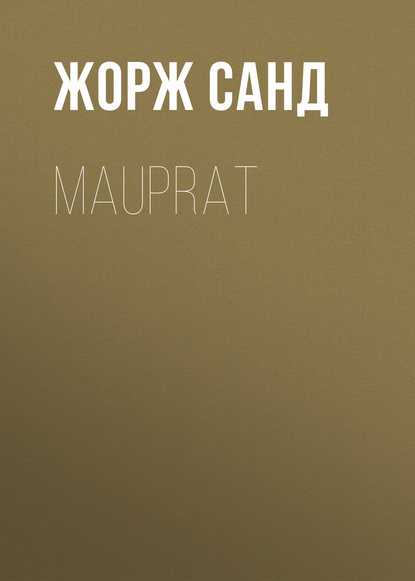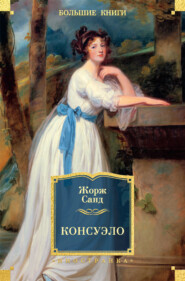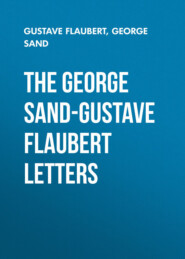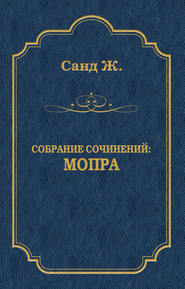По всем вопросам обращайтесь на: info@litportal.ru
(©) 2003-2024.
✖
Mauprat
Настройки чтения
Размер шрифта
Высота строк
Поля
“This letter was so far from being a threatening letter,” she said, “and the impression it left on me was so far from filling me with fear or aversion, that it was found on my heart, where I had been carrying it for a week, though I had not even let Bernard know that I had received it.”
“But you have not yet explained,” said the president, “how it was that seven years ago, when your cousin first came to live in your house, you armed yourself with a knife which you used to put under your pillow every night, after having it sharpened as if to defend yourself in case of need.”
“In my family,” she answered with a blush, “we have a somewhat romantic temperament and a very proud spirit. It is true that I frequently thought of killing myself, because I felt an unconquerable affection for my cousin springing up in me. Believing myself bound by indissoluble ties to M. de la Marche. I would have died rather than break my word, or marry any other than Bernard. Subsequently M. de la Marche freed me from my promise with much delicacy and loyalty, and I no longer thought of dying.”
Edmee now withdrew, followed by all eyes and by a murmur of approbation. No sooner had she passed out of the hall than she fainted again; but this attack was without any grave consequences, and left no traces after a few days.
I was so bewildered, so intoxicated by what she had just said, that henceforth I could scarcely see what was taking place around me. Wholly wrapped up in thoughts of my love, I nevertheless could not cast aside all doubts; for, if Edmee had been silent about some of my actions, it was also possible that she had exaggerated her affection for me in the hope of extenuating my faults. I could not bring myself to think that she had loved me before my departure for America, and, above all, from the very beginning of my stay at Sainte-Severe. This was the one thought that filled my mind; I did not even remember anything further about the case or the object of my trial. It seemed to me that the sole question at issue in this chill Areopagus was this: Is he loved, or is he not? For me, victory or defeat, life or death, hung on that, and that alone.
I was roused from these reveries by the voice of Abbe Aubert. He was thin and wasted, but seemed perfectly calm; he had been kept in solitary confinement and had suffered all the hardships of prison life with the resignation of a martyr. In spite, however, of all precautions, the clever Marcasse, who could work his way anywhere like a ferret, had managed to convey to him a letter from Arthur, to which Edmee had added a few words. Authorized by this letter to say everything, he made a statement similar to that made by Patience, and owned that Edmee’s first words after the occurrence had made him believe me guilty; but that subsequently, seeing the patient’s mental condition, and remembering my irreproachable behaviour for more than six years, and obtaining a little new light from the preceding trial and the public rumours about the possible existence of Antony Mauprat, he had felt too convinced of my innocence to be willing to give evidence which might injure me. If he gave his evidence now, it was because he thought that further investigations might have enlightened the court, and that his words would not have the serious consequences they might have had a month before.
Questioned as to Edmee’s feelings for me, he completely destroyed all Mademoiselle Leblanc’s inventions, and declared that not only did Edmee love me ardently, but that she had felt an affection for me from the very first day we met. This he affirmed on oath, though emphasizing my past misdeeds somewhat more than Edmee had done. He owned that at first he had frequently feared that my cousin would be foolish enough to marry me, but that he had never had any fear for her life, since he had always seen her reduce me to submission by a single word or a mere look, even in my most boorish days.
The continuation of the trial was postponed to await the results of the warrants issued for the arrest of the assassin. People compared my trial to that of Calas, and the comparison had no sooner become a general topic of conversation than my judges, finding themselves exposed to a thousand shafts, realized very vividly that hatred and prejudice are bad counsellors and dangerous guides. The sheriff of the province declared himself the champion of my cause and Edmee’s knight, and he himself escorted her back to her father. He set all the police agog. They acted with vigour and arrested John Mauprat. When he found himself a prisoner and threatened, he betrayed his brother, and declared that they might find him any night at Roche-Mauprat, hiding in a secret chamber which the tenant’s wife helped him to reach, without her husband’s knowledge.
They took the Trappist to Roche-Mauprat under a good escort, so that he might show them this secret chamber, which, in spite of his genius for exploring walls and timber-work, the old pole-cat hunter and mole-catcher Marcasse had never managed to reach. They took me there, likewise, so that I might help to find this room or passage leading to it, in case the Trappist should repent of his present sincere intentions. Once again, then, I revisited this abhorred manor with the ancient chief of the brigands transformed into a Trappist. He showed himself so humble and cringing in my presence, he made so light of his brother’s life, and expressed such abject submission that I was filled with disgust, and after a few moments begged him not to speak to me any more. Keeping in touch with the mounted police outside, we began our search for the secret chamber. At first John had pretended that he knew of its existence, without knowing its exact location now that three-quarters of the keep had been destroyed. When he saw me, however, he remembered that I had surprised him in my room, and that he had disappeared through the wall. He resigned himself, therefore, to taking us to it, and showing us the secret; this was very curious; but I will not amuse myself by giving you an account of it. The secret chamber was opened; no one was there. Yet the expedition had been made with despatch and secrecy. It did not appear probable that John had had time to warn his brother. The keep was surrounded by the police and all the doors were well guarded. The night was dark, and our invasion had filled all the inmates of the farm with terror. The tenant had no idea what we were looking for, but his wife’s agitation and anxiety seemed a sure sign that Antony was still in the keep. She had not sufficient presence of mind to assume a reassured air after we had explored the first room, and that made Marcasse think that there must be a second. Did the Trappist know of this, and was he pretending ignorance? He played his part so well that we were all deceived. We set to work to explore all the nooks and corners of the ruins again. There was one large tower standing apart from the other buildings; it did not seem as if this could offer any one a refuge. The staircase had completely fallen in at the time of the fire, and there could not be found a ladder long enough to reach the top story; even the farmer’s ladders tied together with ropes were too short. This top story seemed to be in a state of good preservation and to contain a room lighted by two loopholes. Marcasse, after examining the thickness of the wall, affirmed that there might be a staircase inside, such as might be found in many an old tower. But where was the exit? Perhaps it was connected with some subterranean passage. Would the assassin dare to issue from his retreat as long as we were there? If, in spite of the darkness of the night and the silence of our proceedings, he had got wind of our presence, would he venture into the open as long as we continued on the watch at all points?
“That is not probable,” said Marcasse. “We must devise some speedy means of getting up there; and I see one.”
He pointed to a beam at a frightful height, all blackened by the fire, and running from the tower over a space of some twenty feet to the garrets of the nearest building. At the end of this beam there was a large gap in the wall of the tower caused by the falling-in of the adjoining parts. In his explorations, indeed, Marcasse had fancied that he could see the steps of a narrow staircase through this gap. The wall, moreover, was quite thick enough to contain one. The mole-catcher had never cared to risk his life on this beam; not that he was afraid of its narrowness or its height; he was accustomed to these perilous “crossings,” as he called them; but the beam had been partly consumed by the fire and was so thin in the middle that it was impossible to say whether it would bear the weight of a man, even were he as slender and diaphanous as the worthy sergeant. Up to the present nothing had happened here of sufficient importance for him to risk his life in the experiment. Now, however, the case was different. Marcasse did not hesitate. I was not near him when he formed his plan; I should have dissuaded him from it at all costs. I was not aware of it until he had already reached the middle of the beam, the spot where the burnt wood was perhaps nothing more than charcoal. How shall I describe to you what I felt when I beheld my faithful friend in mid-air, gravely walking toward his goal? Blaireau was trotting in front of him as calmly as in the old days when it was a question of hunting through bundles of hay in search of stoats and dormice. Day was breaking, and the hildalgo’s slim outline and his modest yet stately bearing could be clearly seen against the gray sky. I put my hands to my face; I seemed to hear the fatal beam cracking; I stifled a cry of terror lest I should unnerve him at this solemn and critical moment. But I could not suppress this cry, or help raising my head when I heard two shots fired from the tower. Marcasse’s hat fell at the first shot; the second grazed his shoulder. He stopped a moment.
“Not touched!” he shouted at us.
And making a rush he was quickly across the aerial bridge. He got into the tower through the gap and darted up the stairs, crying:
“Follow me, my lads! The beam will bear.”
Immediately five other bold and active men who had accompanied him got astride upon the beam, and with the help of their hands reached the other end one by one. When the first of them arrived in the garret whither Antony Mauprat had fled, he found him grappling with Marcasse, who, quite carried away by his triumph and forgetting that it was not a question of killing an enemy but of capturing him, set about lunging at him with his long rapier as if he had been a weasel. But the sham Trappist was a formidable enemy. He had snatched the sword from the sergeant’s hands, hurled him to the ground, and would have strangled him had not a gendarme thrown himself on him from behind. With his prodigious strength he held his own against the first three assailants; but, with the help of the other two, they succeeded in overcoming him. When he saw that he was caught he made no further resistance and let his hands be bound together. They brought him down the stairs, which were found to lead to the bottom of a dry well in the middle of the tower. Antony was in the habit of leaving and entering by means of a ladder which the farmer’s wife held for him and immediately afterwards withdrew. In a transport of delight I threw myself into my sergeant’s arms.
“A mere trifle,” he said; “enjoyed it. I found that my foot was still sure and my head cool. Ha! ha! old sergeant,” he added, looking at his leg, “old hidalgo, old mole-catcher, after this they won’t make so many jokes about your calves!”
XXIX
If Anthony Mauprat had been a man of mettle he might have done me a bad turn by declaring that he had been a witness of my attempt to assassinate Edmee. As he had reasons for hiding himself before this last crime, he could have explained why he had kept out of sight, and why he had been silent about the occurrences at Gazeau Tower. I had nothing in my favour except Patience’s evidence. Would this have been sufficient to procure my acquittal? The evidence of so many others was against me, even that given by my friends, and by Edmee, who could not deny my violent temper and the possibility of such a crime.
But Antony, in words the most insolent of all the “Hamstringers,” was the most cowardly in deeds. He no sooner found himself in the hands of justice than he confessed everything, even before knowing that his brother had thrown him over.
At his trial there were some scandalous scenes, in which the two brothers accused each other in a loathsome way. The Trappist, whose rage was kept in check by his hypocrisy, coldly abandoned the ruffian to his fate, and denied that he had ever advised him to commit the crime. The other, driven to desperation, accused him of the most horrible deeds, including the poisoning of my mother, and Edmee’s mother, who had both died of violent inflammation of the intestines within a short time of each other. John Mauprat, he declared, used to be very skilful in the art of preparing poisons and would introduce himself into houses under various disguises to mix them with the food. He affirmed that, on the day that Edmee had been brought to Roche-Mauprat, John had called together all his brothers to discuss plans for making away with this heiress to a considerable fortune, a fortune which he had striven to obtain by crime, since he had tried to destroy the effects of the Chevalier Hubert’s marriage. My mother’s life, too, had been the price paid for the latter’s wish to adopt his brother’s child. All the Mauprats had been in favour of making away with Edmee and myself simultaneously, and John was actually preparing the poison when the police happened to turn aside their hideous designs by attacking the castle. John denied the charges with pretended horror, saying humbly that he had committed quite enough mortal sins of debauchery and irreligion without having these added to his list. As it was difficult to take Antony’s word for them without further investigation; as this investigation was almost impossible, and as the clergy were too powerful and too much interested in preventing a scandal to allow it, John Mauprat was acquitted on the charge of complicity and merely sent back to the Trappist monastery; the archbishop forbade him ever to set foot in the diocese again, and, moreover, sent a request to his superiors that they would never allow him to leave the convent. He died there a few years later in all the terrors of a fanatic penitence very much akin to insanity.
It is probable that, as a result of feigning remorse in order to find favour among his fellows, he had at last, after the failure of his plans, and under the terrible asceticism of his order, actually experienced the horrors and agonies of a bad conscience and tardy repentance. The fear of hell is the only creed of vile souls.
No sooner was I acquitted and set at liberty, with my character completely cleared, than I hastened to Edmee. I arrived in time to witness my great-uncle’s last moments. Towards the end, though his mind remained a blank as to past events, the memory of his heart returned. He recognised me, clasped me to his breast, blessed me at the same time as Edmee, and put my hand into his daughter’s. After we had paid the last tribute of affection to our excellent and noble kinsman, whom we were as grieved to lose as if we had not long foreseen and expected his death, we left the province for some time, so as not to witness the execution of Antony, who was condemned to be broken on the wheel. The two false witnesses who had accused me were flogged, branded, and expelled from the jurisdiction of the court. Mademoiselle Leblanc, who could not exactly be accused of giving false evidence, since hers had consisted of mere inferences from facts, avoided the public displeasure by going to another province. Here she lived in sufficient luxury to make us suspect that she had been paid considerable sums to bring about my ruin.
Edmee and I would not consent to be separated, even temporarily, from our good friends, my sole defenders, Marcasse, Patience, Arthur, and the Abbe Aubert. We all travelled in the same carriage; the first two, being accustomed to the open air, were only too glad to sit outside; but we treated them on a footing of perfect equality. From that day forth they never sat at any table but our own. Some persons had the bad taste to express astonishment at this; we let them talk. There are circumstances that obliterate all distinctions, real or imaginary, of rank and education.
We paid a visit to Switzerland. Arthur considered this was essential to the complete restoration of Edmee’s health. The delicate, thoughtful attentions of this devoted friend, and the loving efforts we made to minister to her happiness, combined into the beautiful spectacle of the mountains to drive away her melancholy and efface the recollection of the troublous times through which we had just passed. On Patience’s poetic nature Switzerland had quite a magic effect. He would frequently fall into such a state of ecstasy that we were entranced and terrified at the same time. He felt strongly tempted to build himself a chalet in the heart of some valley and spend the rest of his life there in contemplation of Nature; but his affection for us made him abandon this project. As for Marcasse, he declared subsequently that, despite all the pleasure he had derived from our society, he looked upon this visit as the most unlucky event of his life. At the inn at Martigny, on our return journey, Blaireau, whose digestion had been impaired by age, fell a victim to the excess of hospitality shown him in the kitchen. The sergeant said not a word, but gazed on him awhile with heavy eye, and then went and buried him under the most beautiful rose-tree in the garden; nor did he speak of his loss until more than a year later.
During our journey Edmee was for me a veritable angel of kindness and tender thought; abandoning herself henceforth to all the inspirations of her heart, and no longer feeling any distrust of me, or perhaps thinking that I deserved some compensation for all my sufferings, she repeatedly confirmed the celestial assurances of love which she had given in public, when she lifted up her voice to proclaim my innocence. A few reservations that had struck me in her evidence, and a recollection of the damning words that had fallen from her lips when Patience found her shot, continued, I must confess, to cause me pain for some time longer. I thought, rightly perhaps, that Edmee had made a great effort to believe in my innocence before Patience had given his evidence. But on this point she always spoke most unwillingly and with a certain amount of reserve. However, one day she quite healed my wound by saying with her charming abruptness:
“And if I loved you enough to absolve you in my own heart, and defend you in public at the cost of a lie, what would you say to that?”
A point on which I felt no less concern was to know how far I might believe in the love which she declared she had had for me from the very beginning of our acquaintance. Here she betrayed a little confusion, as if, in her invincible pride, she regretted having revealed a secret she had so jealously guarded. It was the abbe who undertook to confess for her. He assured me that at that time he had frequently scolded Edmee for her affection for “the young savage.” As an objection to this, I told him of the conversation between Edmee and himself which I had overheard one evening in the park. This I repeated with that great accuracy of memory I possess. However, he replied:
“That very evening, if you had followed us a little further under the trees, you might have overheard a dispute that would have completely reassured you, and have explained how, from being repugnant (I may almost say odious) to me, as you then were, you became at first endurable, and gradually very dear.”
“You must tell me,” I exclaimed, “who worked the miracle.”
“One word will explain it,” he answered; “Edmee loved you. When she had confessed this to me, she covered her face with her hands and remained for a moment as if overwhelmed with shame and vexation; then suddenly she raised her head and exclaimed:
“‘Well, since you wish to know the absolute truth, I love him! Yes, I love him! I am smitten with him, as you say. It is not my fault; why should I blush at it? I cannot help it; it is the work of fate. I have never loved M. de la Marche; I merely feel a friendship for him. For Bernard I have a very different feeling – a feeling so strong, so varied, so full of unrest, of hatred, of fear, of pity, of anger, of tenderness, that I understand nothing about it, and no longer try to understand anything.’”
“‘Oh, woman, woman!’ I exclaimed, clasping my hands in bewilderment, ‘thou art a mystery, an abyss, and he who thinks to know thee is totally mad!’
“‘As many times as you like, abbe,’ she answered, with a firmness in which there were signs of annoyance and confusion, ‘it is all the same to me. On this point I have lectured myself more than you have lectured all your flocks in your whole life. I know that Bernard is a bear, a badger, as Mademoiselle Leblanc calls him, a savage, a boor, and anything else you like. There is nothing more shaggy, more prickly, more cunning, more malicious than Bernard. He is an animal who scarcely knows how to sign his name; he is a coarse brute who thinks he can break me in like one of the jades of Varenne. But he makes a great mistake; I will die rather than ever be his, unless he becomes civilized enough to marry me. But one might as well expect a miracle. I try to improve him, without daring to hope. However, whether he forces me to kill myself or to turn nun, whether he remains as he is or becomes worse, it will be none the less true that I love him. My dear abbe, you know that it must be costing me something to make this confession; and, when my affection for you brings me as a penitent to your feet and to your bosom, you should not humiliate me by your expressions of surprise and your exorcisms! Consider the matter now; examine, discuss, decide! Consider the matter now; examine, discuss, decide! The evil is – I love him. The symptoms are – I think of none but him, I see none but him; and I could eat no dinner this evening because he had not come back. I find him handsomer than any man in the world. When he says that he loves me, I can see, I can feel that it is true; I feel displeased, and at the same time delighted. M. de la Marche seems insipid and prim since I have known Bernard. Bernard alone seems as proud, as passionate, as bold as myself – and as weak as myself; for he cries like a child when I vex him, and here I am crying, too, as I think of him.’”
“Dear abbe,” I said, throwing myself on his neck, “let me embrace you till I have crushed your life out for remembering all this.”
“The abbe is drawing the long bow,” said Edmee archly.
“What!” I exclaimed, pressing her hands as if I would break them. “You have made me suffer for seven years, and now you repent a few words that console me.”
“In any case do not regret the past,” she said. “Ah, with you such as you were in those days, we should have been ruined if I had not been able to think and decide for both of us. Good God! what would have become of us by now? You would have had far more to suffer from my sternness and pride; for you would have offended me from the very first day of our union, and I should have had to punish you by running away or killing myself, or killing you – for we are given to killing in our family; it is a natural habit. One thing is certain, and that is that you would have been a detestable husband; you would have made me blush for your ignorance; you would have wanted to rule me, and we should have fallen foul of each other; that would have driven my father to despair, and, as you know, my father had to be considered before everything. I might, perhaps, have risked my own fate lightly enough, if I had been alone in the world, for I have a strain of rashness in my nature; but it was essential that my father should remain happy, and tranquil, and respected. He had brought me up in happiness and independence, and I should never have forgiven myself if I had deprived his old age of the blessings he had lavished on my whole life. Do not think that I am full of virtues and noble qualities, as the abbe pretends; I love, that is all; but I love strongly, exclusively, steadfastly. I sacrificed you to my father, my poor Bernard; and Heaven, who would have cursed us if I had sacrificed my father, rewards us to-day by giving us to each other, tried and not found wanting. As you grew greater in my eyes I felt that I could wait, because I knew I had to love you long, and I was not afraid of seeing my passion vanish before it was satisfied, as do the passions of feeble souls. We were two exceptional characters; our loves had to be heroic; the beaten track would have led both of us to ruin.”
XXX
We returned to Sainte-Severe at the expiration of Edmee’s period of mourning. This was the time that had been fixed for our marriage. When we had quitted the province where we had both experienced so many bitter mortifications and such grievous trials, we had imagined that we should never feel any inclination to return. Yet, so powerful are the recollections of childhood and the ties of family life that, even in the heart of an enchanted land which could not arouse painful memories, we had quickly begun to regret our gloomy, wild Varenne, and sighed for the old oaks in the park. We returned, then, with a sense of profound yet solemn joy. Edmee’s first care was to gather the beautiful flowers in the garden and to kneel by her father’s grave and arrange them on it. We kissed the hallowed ground, and there made a vow to strive unceasingly to leave a name as worthy of respect and veneration as his. He had frequently carried this ambition to the verge of weakness, but it was a noble weakness, a sacred vanity.
Our marriage was celebrated in the village chapel, and the festivities were confined to the family; none but Arthur, the abbe, Marcasse, and Patience sat down to our modest banquet. What need had we of the outside world to behold our happiness? They might have believed, perhaps, that they were doing us an honour by covering the blots on our escutcheon with their august presence. We were enough to be happy and merry among ourselves. Our hearts were filled with as much affection as they could hold. We were too proud to ask more from any one, too pleased with one another to yearn for greater pleasure. Patience returned to his sober, retired life, resumed the duties of “great judge” and “treasurer” on certain days of the week. Marcasse remained with me until his death, which happened towards the end of the French Revolution. I trust I did my best to repay his fidelity by an unreserved friendship and an intimacy that nothing could disturb.
Arthur, who had sacrificed a year of his life to us, could not bring himself to abjure the love of his country, and his desire to contribute to its progress by offering it the fruits of his learning and the results of his investigations; he returned to Philadelphia, where I paid him a visit after I was left a widower.
I will not describe my years of happiness with my noble wife; such years beggar description. One could not resign one’s self to living after losing them, if one did not make strenuous efforts to avoid recalling them too often. She gave me six children; four of these are still alive, and all honourably settled in life. I have lived for them, in obedience to Edmee’s dying command. You must forgive me for not speaking further of this loss, which I suffered only ten years ago. I feel it now as keenly as on the first day, and I do not seek to find consolation for it, but to make myself worthy of rejoining the holy comrade of my life in a better world after I have completed my period of probation in this. She was the only woman I ever loved; never did any other win a glance from me or know the pressure of my hand. Such is my nature; what I love I love eternally, in the past, in the present, in the future.
The storms of the Revolution did not destroy our existence, nor did the passions it aroused disturb the harmony of our private life. We gladly gave up a large part of our property to the Republic, looking upon it, indeed, as a just sacrifice. The abbe, terrified by the bloodshed, occasionally abjured this political faith, when the necessities of the hour were too much for the strength of his soul. He was the Girondin of the family.
With no less sensibility, Edmee had greater courage; a woman and compassionate, she sympathized profoundly with the sufferings of all classes. She bewailed the misfortune of her age; but she never failed to appreciate the greatness of its holy fanaticism. She remained faithful to her ideas of absolute equality. At a time when the acts of the Mountain were irritating the abbe, and driving him to despair, she generously sacrificed her own patriotic enthusiasm; and her delicacy would never let her mention in his presence certain names that made him shudder, names for which she herself had a sort of passionate veneration, the like of which I have never seen in any woman.
As for myself, I can truthfully say that it was she who educated me; during the whole course of my life I had the profoundest respect for her judgment and rectitude. When, in my enthusiasm, I was filled with a longing to play a part as a leader of the people, she held me back by showing how my name would destroy any influence I might have; since they would distrust me, and imagine my aim was to use them as an instrument for recovering my rank. When the enemy was at the gates of France, she sent me to serve as a volunteer; when the Republic was overthrown, and a military career came to be merely a means of gratifying ambition, she recalled me, and said:
“You must never leave me again.”
Patience played a great part in the Revolution. He was unanimously chosen as judge of his district. His integrity, his impartiality between castle and cottage, his firmness and wisdom will never be forgotten in Varenne.
During the war I was instrumental in saving M. de la Marche’s life, and helping him to escape to a foreign country.
Such, I believe, said old Mauprat, are all the events of my life in which Edmee played a part. The rest of it is not worth the telling. If there is anything helpful in my story, try to profit by it, young fellows. Hope to be blessed with a frank counsellor, a severe friend; and love not the man who flatters, but the man who reproves. Do not believe too much in phrenology; for I have the murderer’s bump largely developed, and, as Edmee used to say with grim humour, “killing comes natural” to our family. Do not believe in fate, or, at least, never advise any one to tamely submit to it. Such is the moral of my story.
After this old Bernard gave us a good supper, and continued conversing with us for the rest of the evening without showing any signs of discomposure or fatigue. As we begged him to develop what he called the moral of his story a little further, he proceeded to a few general considerations which impressed me with their soundness and good sense.

















